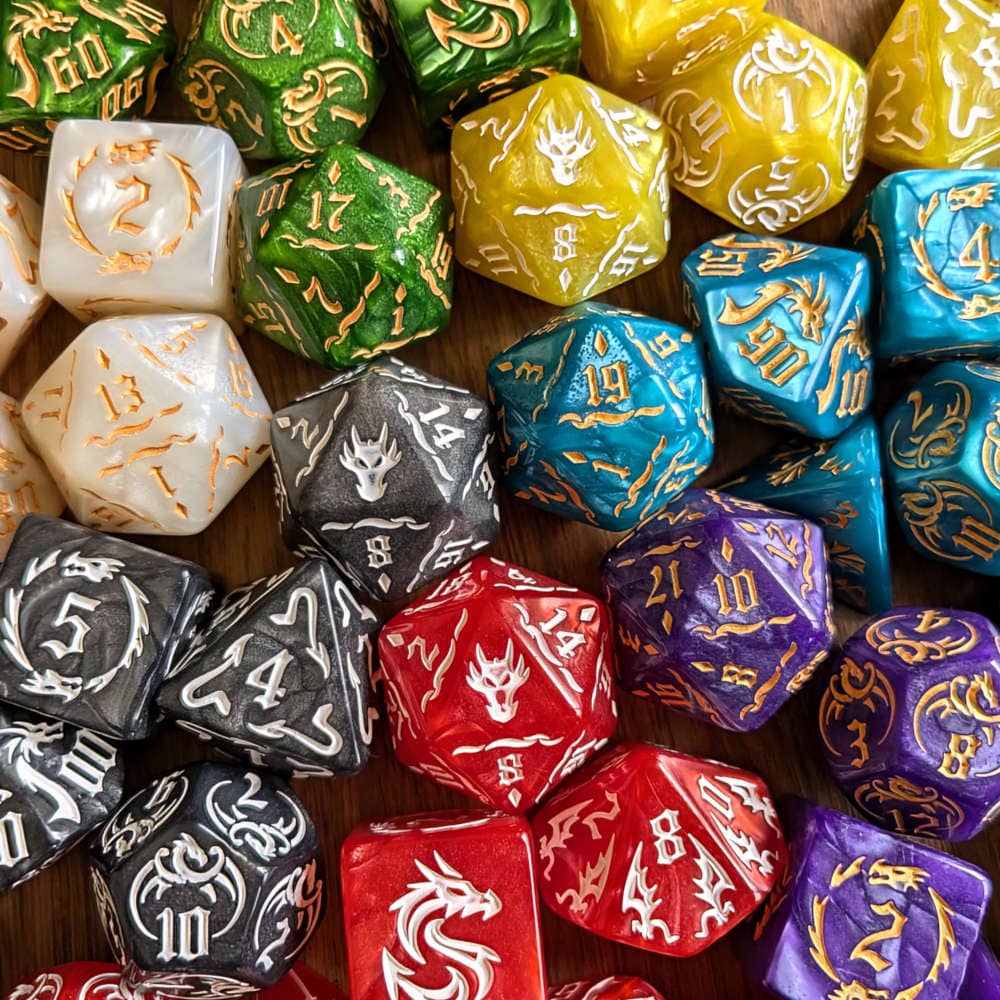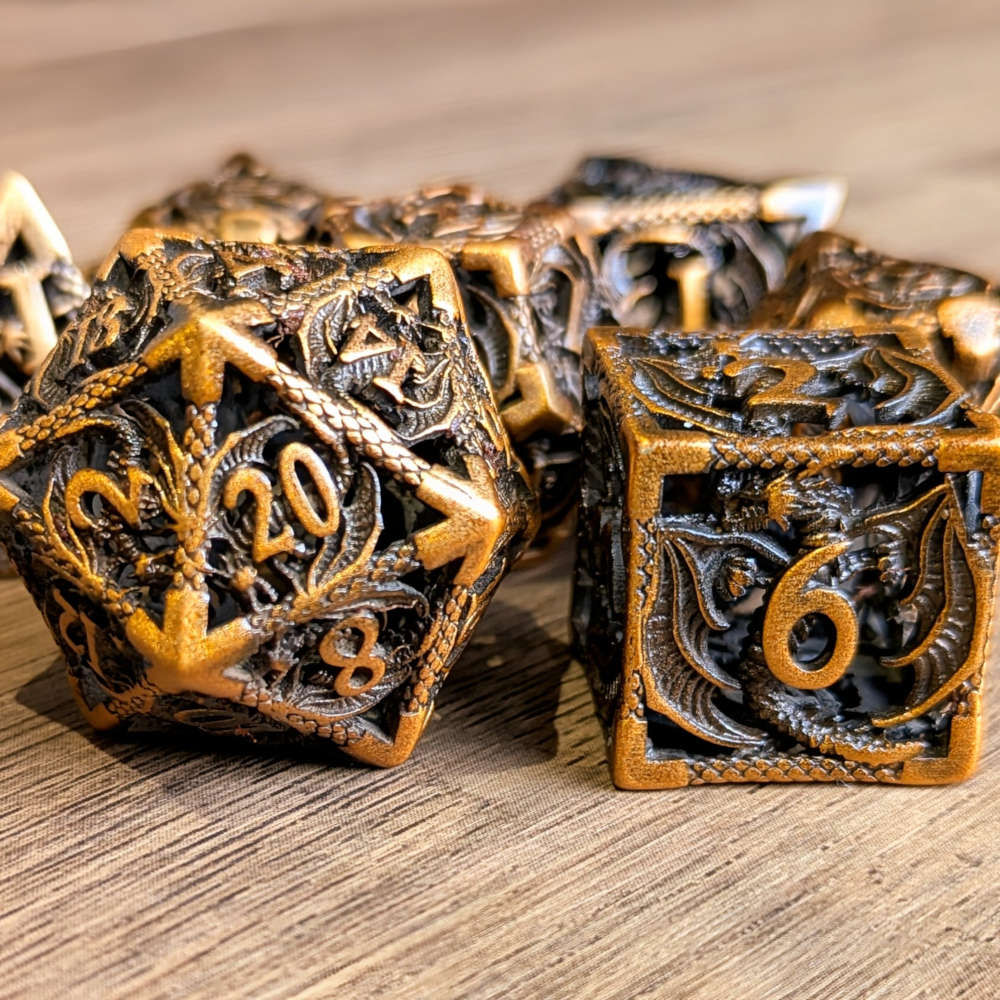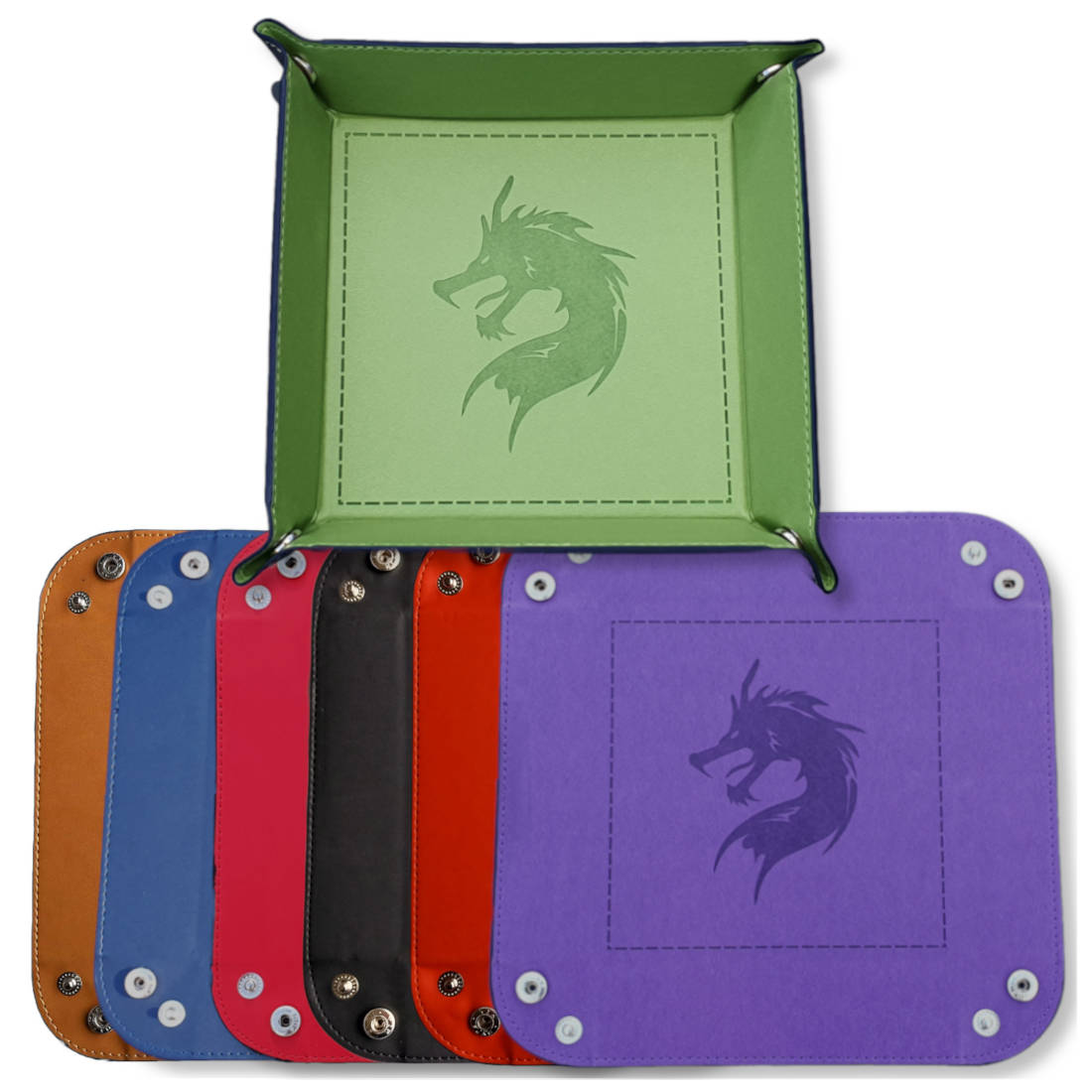How to improvise in D&D

Improvisation is a key skill in Dungeons & Dragons, whether you're a Dungeon Master crafting an unpredictable world or a player reacting to unexpected twists in the story.
This guide covers how to improvise in D&D for both Dungeon Masters and players, offering practical tips to help you think on your feet, adapt to changing situations, and keep the game flowing smoothly.
What is improvisation in DND?
Improvisation, or improv, is the act of creating something on the spot without prior planning. While often linked to theatre, it's a crucial skill in D&D for both Dungeon Masters and players.
Since D&D is a dynamic game driven by player choices and dice rolls, things rarely go exactly as planned. Being able to think quickly and adapt keeps the game flowing and makes storytelling more engaging.
For example, a player improvising might come up with a creative way to solve a puzzle, like using an unexpected spell to bypass an obstacle. A DM improvising could introduce a new NPC when the party asks for someone they hadn’t planned for or adjust an encounter when players take a wildly different approach.
While not every DM prefers an improv-heavy style, it’s a valuable tool for keeping the game engaging. If you're looking for other ways to improve as a DM, check out our guides on how to become a better Dungeon Master and how to ask for feedback from your DND players.
Do Dungeon Masters improvise?
Yes, Dungeon Masters do improvise, but it's not the only skill needed to run a great game. While some moments; like a spontaneous NPC or an unexpected plot twist; might be improvised, most DMs put a lot of effort behind the scenes into crafting their world, developing the story, designing encounters, and preparing NPCs. Improvisation helps fill in the gaps when players do something unexpected, but it doesn’t replace the planning and creativity that go into running a D&D campaign.
Is DND just improv?
No, D&D isn’t just improv, but improvisation is an important part of the game. Players rely on improv more because they must react to the world, roleplay their characters, and make decisions on the fly. DMs, on the other hand, can plan and prepare ahead of time, crafting the world, story, and encounters in advance. However, both players and DMs will use improv to adapt, respond to surprises, and contribute to the evolving narrative.
How to improvise as a DM
Not every Dungeon Master leans into improvisation, but the ability to adapt to player choices is essential. As the saying goes, “no plan survives contact with the players”, and embracing improv can make your sessions more dynamic and engaging. Here are some tips to help you improvise smoothly and confidently as a DM.
1. Focus on the players
Your role is to facilitate the story based on player actions. Instead of forcing a set narrative, react to their choices and build the world around them dynamically.
2. Listen actively
Stay engaged, eliminate distractions, and take notes of what happens in your D&D sessions. The better you listen, the easier it is to react naturally and weave player ideas into the game.
3. Keep an open mind
Use the “Yes, and...” approach to build on player ideas or the “No, but...” method to guide them creatively. For example, if a player wants a pet dragon, rather than shutting it down outright, try and work it into the story - perhaps they find a dragon egg or bond with a baby dragon over time.
4. Ask questions
Encourage roleplay by asking players about their characters and motivations. Their answers can inspire spontaneous world-building and plot twists.
5. Don’t fear silence
Taking a few seconds to pause and think before responding is perfectly fine. Thoughtful improvisation often leads to better storytelling than rushing a response.
6. Make decisive calls
When faced with unexpected situations, trust your instincts. Make a call, stick with it, and jot it down so you can remain consistent in future sessions.
7. Use random tables and lists
Prepare lists of NPC names, locations, and plot hooks to pull from when needed. Random tables are invaluable for adding depth to your world on the fly - another reason why a DM screen is a great tool!
8. Get player feedback
After the session, ask players what they enjoyed and what they’d like to explore next. Their feedback helps you prepare without over-planning, keeping the game flexible and fun.
Can you improvise a D&D campaign?
Absolutely, you can improvise much of a D&D session but crafting a D&D campaign requires some degree of forethought and planning. You’ll need to consider its direction, potential end, key elements, and themes before you start playing. You’ll also need to conduct a session 0 to get player buy-in and discuss boundaries.
How to improvise as a player
Improvisation isn’t just for Dungeon Masters - players also play a huge role in shaping the story. Here are some tips to help you improvise with confidence and have more fun in your D&D sessions.
1. Actively listen and take notes
Pay attention to what’s happening in the game - names, locations, plot points, and NPC quirks. Taking simple notes will help you remember important details, ask better questions, and stay involved in the story.
2. Speak up and be curious
The game is more exciting when players engage with the world. Ask questions, interact with NPCs, and explore - even if you’re unsure what will happen. The more you put into the game, the richer your experience will be.
3. Don’t worry about being perfect
You don’t need to be an expert roleplayer to enjoy D&D. If you want to try something - go for it! The more you experiment with improv, the easier it becomes. Everyone is there to have fun, not judge your performance.
4. Develop your character’s traits and flaws
When creating your character, give them personality traits, ideals, bonds, and flaws. These elements give you something to improvise with - how would your character react in a tough situation? What drives them forward? Even small details make them feel more real. For some help with this, explore our guide to making interesting D&D characters.
5. Embrace the unexpected
Sometimes the dice won’t roll in your favour, but don’t let that frustrate you - lean into it! A critical failure or a bad decision can lead to some of the most hilarious and memorable moments in a campaign.
6. Try pre-session rituals
If you get nervous or struggle to get into character, try a small ritual before the session - listen to music, write a quick journal entry as your character, or chat with the party. These small habits can help you get in the right mindset, especially if you’re looking to play D&D with social anxiety.
7. Use “Yes, and...” to build on ideas
Good improv means working with what’s given. Instead of shutting down ideas, build on them. If another player suggests a wild plan, add to it rather than dismissing it. D&D is at its best when the whole table collaborates.
8. Have fun with it
Improvisation is about having fun and going with the flow. Whether you’re cracking jokes, pulling off daring stunts, or making heartfelt speeches, just enjoy the moment. The best D&D stories come from players who embrace the chaos and roll with whatever happens!
How can I improve my improv skills in D&D?
Improvisation takes practice, patience, and experience - it’s a skill you build over time. With practice, inspiration, and a solid grasp of the game, your improvisation skills will improve.
Dice sets to guide your adventures onward
Start your tabletop journey with our stunning D&D dice sets. Whether you’re a beginner or an experienced dungeon delver, we have the perfect dice for every adventurer.
At Dice Dragons, we offer more than just beautiful dice - we also provide helpful guides, like our tips for becoming a better D&D player. Remember, patience and an open mind are essential to improving your improv skills. Best of luck on your journey, and may your adventures be unforgettable!






